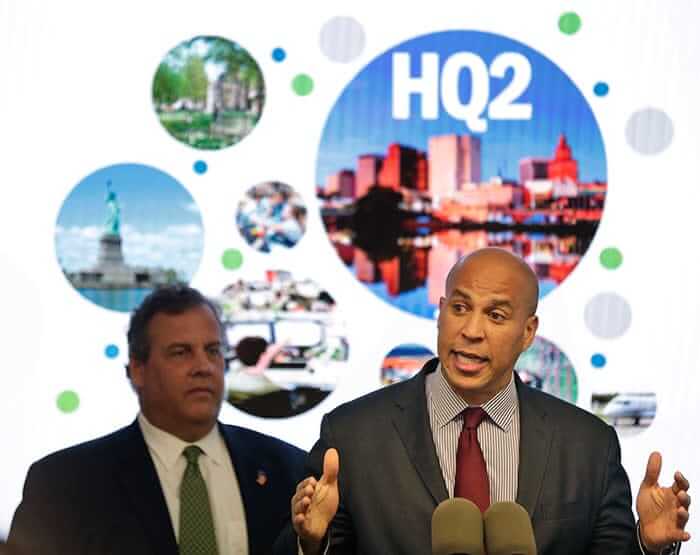Prominent Republicans are taking aim at Silicon Valley’s most prized legal shield as they escalate their accusations that Big Tech is biased against conservatives.
The tech industry is growing concerned about recent proposals Sen. Josh Hawley (R-Mo.) and Donald Trump Jr. floated to change Section 230 of the Communications Decency Act — a decades-old legal provision that protects tech platforms from liability for content posted on them. Hawley says the law has also allowed the companies to make editorial decisions about who can post on their sites — with no recourse for objectors.
Hawley is pushing a change to Section 230 to prevent “viewpoint discrimination,” which would bar tech companies from moderating content based on political ideology (something they already fiercely deny doing.) Donald Trump Jr. specifically called out Hawley’s support for such a requirement in an op-ed slamming the tech giants that President Donald Trump promoted on Twitter.
 Conservatives have long criticized tech platforms like Facebook and Twitter for anti-conservative bias (see Rep. Devin Nunes’s recent Twitter lawsuit). But industry leaders deny such a practice has ever taken place.
Conservatives have long criticized tech platforms like Facebook and Twitter for anti-conservative bias (see Rep. Devin Nunes’s recent Twitter lawsuit). But industry leaders deny such a practice has ever taken place.
“It’s a really sweet deal,” Hawley said in an interview with The Verge published this week, referring to the lack of responsibility born by tech companies for their content. “I think we need to consider what reforms need to be made there in order to prevent viewpoint discrimination.”
Tech industry lobbyists warn Hawley’s proposal betrays a “fundamental misunderstanding” of how the law works and are worried any change could result in a chilling effect on free speech online. They say it also could leave start-ups vulnerable to costly lawsuits and further consolidate the power of large technology companies who have more legal resources.
Section 230 also protects companies from lawsuits for any action they take to restrict obscene, excessively violent or harassing content — a key issue as companies are increasingly under pressure to crack down on violent content or disinformation in the wake of incidents like the New Zealand mosque shooting.
“This law is what enables the companies to be Good Samaritans and police the platforms,” said Michael Beckerman, the president and chief executive of the Internet Association, a trade group representing companies like Google and Facebook. “What some people are asking for makes you scratch your head a little bit.”
But conservatives are framing the resurrected debate about how to police content on the Internet with their own concerns about what they see as politically biased moderation of information disseminated on big platforms like Google, Facebook and YouTube.
Hawley told The Verge it’s time to consider reforms to Section 230 to ensure technology companies can’t “exert editorial control” over political ideology they disagree with. He said he’s not talking about speech that advocates crime. When asked if such a change would result in more government censorship, the Missouri Republican said the top platforms “are engaging in censorship now.”
“People say, ‘Well, where would you draw the line?’ Well, First Amendment law has drawn this line for a long time.” Hawley said. “The law has developed clearly what’s the difference between speech that is illegal, and therefore protected, and then viewpoint speech.”
Hawley, a freshman senator who is quickly becoming one of the tech industry’s top conservative critics, has been criticizing Section 230 for months. He was unavailable for an interview for this piece.
Hawley’s comments were published as President Trump renewed allegations the technology industry discriminates against conservatives. Industry heads have repeatedly denied there is anti-conservative bias on their platforms.
But other conservatives may not be on board with Hawley’s proposal. It could be a particularly tough sell among Republicans who favour deregulation and government taking a hands-off approach to the industry.
Jesse Blumenthal, who leads technology and innovation across the Koch network, said the charges that the tech industry is biased against conservatives are “politically motivated nonsense.” He warned that Section 230 already strikes the right balance.
“Politicizing content moderation decisions is really dangerous because it puts politicians in charge of speech issues,” Blumenthal said.
Blumenthal warned that changing Section 230 is at odds with conservative values, comparing it to “creating a Fairness Doctrine for the Internet.” That doctrine required broadcasters airing programs on politics to include opposing views on those issues. A 1987 decision to revoke the doctrine is credited with the explosion in conservative talk radio.
Tech industry advocates said that the fact conservatives use tech platforms such as Facebook and Twitter to disseminate bias accusations proves the platforms aren’t systematically biased against them. Earlier this week, President Trump tweeted that Twitter, as well as Google and Facebook, were on the “side of the Radical Left Democrats.”
An advocate for technology start-ups pointed out conservatives should be aware that changes to Section 230 would only make it harder to create new social networks as an alternative.
“If you think there are not enough pathways for certain speech to get out, you can create them,” said Evan Engstrom, the executive director of start-up advocacy organization Engine. “The idea that the Internet has limited ability of conservative voices to get to their audience is preposterous.”








